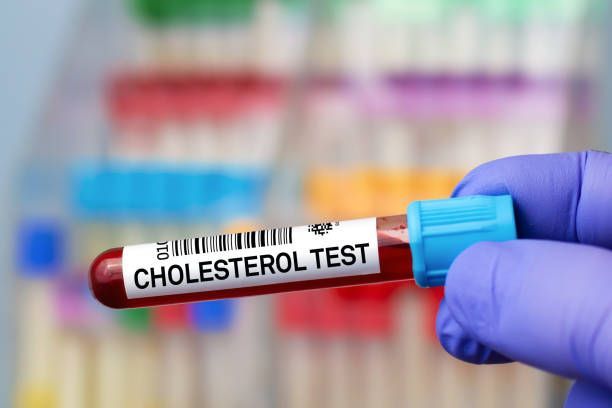Can Urgent Care Help with Asthma Attacks?
Asthma is a chronic condition that affects more than 25 million Americans, including approximately 5 million children. It remains one of the most prevalent chronic respiratory conditions in the United States, leading to over 1.8 million emergency room visits annually. Characterized by inflammation and narrowing of the airways, asthma can be a life-altering condition. When symptoms escalate into an attack, it may require immediate care.
That’s why understanding the right course of action can be lifesaving. While emergency rooms are essential for severe cases, urgent care centers can provide effective, timely treatment for mild to moderate asthma attacks.
In this guide, we explore what happens during an asthma attack, the role of urgent care in managing these episodes, and the available treatments.
What Happens During an Asthma Attack?
An asthma attack, or exacerbation, occurs when the airways become inflamed, narrow due to muscle tightening, and produce excessive mucus. This combination obstructs airflow, leading to difficulty breathing.
Common Sign or Symptom of an Asthma Attack
- Shortness of breath or rapid breathing
- Wheezing (a whistling sound when exhaling)
- Chest tightness or pressure
- Coughing, particularly at night or early morning
- Difficulty speaking in full sentences
These symptoms can range from mild to severe. In extreme cases, an asthma attack can result in respiratory failure if not addressed promptly.

What Triggers Asthma Attacks
Asthma attacks often result from exposure to triggers such as:
- Allergens: Dust mites, pollen, mold, or pet dander.
- Irritants: Tobacco smoke, strong perfumes, or air pollution.
- Cold Air: Breathing in cold, dry air can exacerbate symptoms.
- Respiratory Infections: Colds, flu, or other infections can worsen asthma.
- Exercise: Physical activity, especially in cold air, can induce asthma symptoms.
Read this next: Top 10 Most Common Allergies
Can Urgent Care Treat Asthma Attacks?
Yes, urgent care centers are equipped to handle mild to moderate asthma attacks. They provide quick, professional treatment to stabilize your symptoms and prevent further complications.
Urgent care is a practical option in situations where:
- Your symptoms persist despite using a rescue inhaler.
- You are unable to see your primary care physician immediately.
- You need treatment, but the situation is not severe enough to warrant a trip to the emergency room.
What is the Treatment for Asthma
Urgent care centers can provide several treatments to relieve asthma symptoms and improve breathing:
1. Bronchodilators
Bronchodilators, such as albuterol, are often administered via inhalers or nebulizers to relax the airway muscles and improve airflow. A nebulizer delivers medication in a mist form, which can be especially effective during moderate attacks.
2. Corticosteroids
Corticosteroids, either oral or injectable, help reduce inflammation in the airways. These medications are particularly effective for attacks that persist despite using a rescue inhaler.
3. Oxygen Therapy
If oxygen levels drop significantly, supplemental oxygen may be provided to stabilize your breathing and prevent complications like hypoxia.
4. Monitoring
Urgent care centers often use tools like pulse oximetry and spirometry to assess the severity of your asthma attack and track your recovery progress.
When to Visit the Emergency Room
While urgent care is suitable for mild to moderate asthma attacks, certain symptoms indicate the need for emergency medical care. Seek immediate attention if you experience:
- Severe shortness of breath or inability to speak in full sentences.
- No improvement after using a rescue inhaler.
- Cyanosis (bluish lips, face, or fingertips), indicating low oxygen levels.
- Chest pain or extreme fatigue.
In these cases, emergency rooms are equipped to provide advanced treatments, including intubation, mechanical ventilation, or intravenous medications.
For detailed guidance on asthma emergencies, visit the National Heart, Lung, and Blood Institute (NHLBI).
The Role of an Asthma Action Plan
One of the most effective tools for managing asthma is a personalized asthma action plan. This plan, created in collaboration with your healthcare provider, outlines:
- Daily management strategies, including prescribed medications.
- How to recognize worsening symptoms.
- Steps to take during an asthma attack.
- When to seek urgent or emergency care.
Tips on How to Prevent Asthma Attacks
While asthma attacks aren’t always avoidable, taking proactive measures can significantly reduce their frequency and severity.
1. Identify and Avoid Triggers
- Use air purifiers to reduce exposure to dust, pollen, and pet dander.
- Avoid smoking or exposure to secondhand smoke.
- Wear a mask in environments with strong odors or air pollution.
2. Stick to Your Treatment Plan
- Take prescribed medications, such as long-term control inhalers, as directed by your doctor.
- Keep rescue inhalers on hand and check their expiration dates regularly.
3. Maintain a Healthy Lifestyle
- Engage in regular exercise, but consult your doctor about managing exercise-induced asthma.
- Eat a balanced diet rich in anti-inflammatory foods like fish, leafy greens, and nuts.
4. Get Regular Check-Ups
Regular visits to your healthcare provider can help monitor your asthma and adjust treatments as needed.
The Benefits of Urgent Care for Asthma

Urgent care centers offer several advantages for managing asthma attacks:
- Accessibility: Many centers operate outside regular business hours, including evenings and weekends.
- Cost-Effectiveness: Urgent care visits are generally less expensive than emergency room visits.
- Short Wait Times: Patients can often receive treatment faster at urgent care centers compared to ERs.
How to Prevent Asthma Flare ups
Being prepared can make a significant difference during an asthma attack:
- Know Your Triggers: Identify the environmental or physical factors that worsen your symptoms.
- Monitor Your Symptoms: Use a peak flow meter to measure your lung function daily.
- Educate Your Family and Friends: Ensure they know how to respond if you have an attack.
Walk-in at UrgiClinic Urgent Care Today
Asthma attacks can be frightening, but knowing where to seek help is critical to managing them effectively. Urgent care centers provide timely, cost-effective treatment for mild to moderate attacks, making them an excellent option when symptoms arise.
By maintaining an asthma action plan, avoiding triggers, and understanding the resources available to you, managing asthma becomes more manageable and less disruptive to your daily life.
If you or a loved one is experiencing asthma symptoms,
check in with us at Urgiclinic Urgent Care. Our skilled medical professionals are ready to provide effective treatment for your mild asthma attack.













